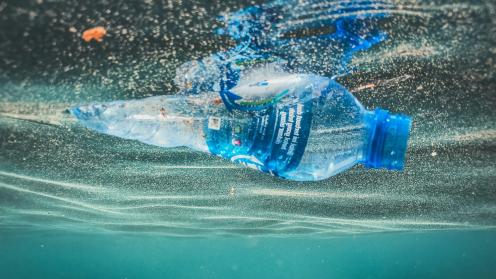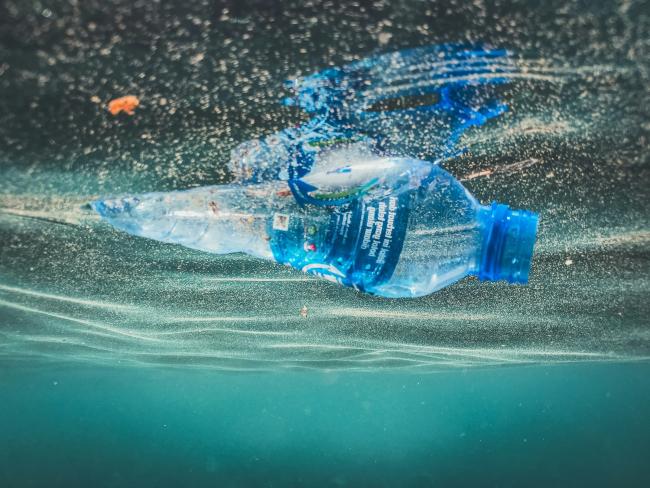About
Delegates tasked with crafting an international legally binding instrument to end the scourge of plastic pollution will respond to a Revised Zero Draft text in their penultimate meeting.
All coverage
Plastic pollution is a crisis of global proportion. From coast to coast, plastic waste clogs waterways, chokes biodiversity, and its component chemicals leak into soil, waterways, groundwater and even humans. While humans have come to rely on plastic products, we have been unable to zero in on a solution for their environmentally sound disposal. Plastic is almost indestructible, far exceeding a typical human lifespan. Yet, many of the products we use each day are immediately discarded. The plastic pollution crisis is a product of this duality.
Plastic pollution is impossible to ignore, not just because it is an eyesore, but also because of the mounting evidence showing its effects on human and animal health and the environment. As the threats presented by plastic pollution continue to be uncovered—including health concerns due to plastic particles in human placenta, breastmilk, and blood—the industry responsible for the production and manufacture of virgin plastic and single-use plastic products continues to thrive, with more plastic produced in the last decade than ever before.
In response to the alarming, and ever growing, scourge, policymakers adopted resolution 5/14 to end plastic pollution at the resumed fifth session of the United Nations Environment Assembly in 2022. The resolution established an Intergovernmental Negotiating Committee (INC) to prepare an international legally binding instrument on plastic pollution, including in the marine environment.
The INC, scheduled to complete its work in five sessions before the end of 2024, has met three times: November 2022, May 2023, and November 2023.
At INC-4, delegates will base their discussions on a Revised Zero Draft of the future instrument, compiled by the Secretariat. The Revised Zero Draft is a product of the three contact groups established during INC-3 to consider the original zero draft, and a synthesis report on previously undiscussed elements.
The Revised Zero Draft contains options for treaty text organized in five sections pertaining to:
- Primary provisions, including the preamble, objectives, principles, and scope;
- The management of plastic along its lifecycle, including primary polymers, product design, and waste management, as well as extended producer responsibility, trade, and existing pollution;
- Means of implementation, including financing, capacity building, and technology transfer;
- Tracking implementation, including through reporting, compliance, and international cooperation; and
- Institutional arrangements, including governing and subsidiary bodies and a secretariat.
The revised text includes a placeholder for final provisions, and also contains possible annexes to the future instrument, which will require careful negotiation.
INC-4 will be preceded by regional consultations on 21 April 2024, with the negotiations slated for 23-29 April 2024 at the Shaw Center in Ottawa, Ontario, Canada.
The Earth Negotiations Bulletin (ENB) writers for this meeting are Tallash Kantai; Katarina Hovden; Vijay Kolinjivadi, Ph.D.; and Jose F. Pinto-Bazurco, Ph.D. The Photographer is Kiara Worth, Ph.D. The Editor is Pam Chasek, Ph.D.
View past and future events
Past event
Ad hoc Open-ended Working Group to Prepare for the Intergovernmental Negotiating Committee to End Plastic Pollution
Past event
1st Session of the Intergovernmental Negotiating Committee to develop an international legally binding instrument on plastic pollution, including in the marine environment (INC-1)
Past event
2nd Session of the Intergovernmental Negotiating Committee to Develop an International Legally Binding Instrument on Plastic Pollution, Including in the Marine Environment (INC-2)
Past event
3rd Session of the Intergovernmental Negotiating Committee to Develop an International Legally Binding Instrument on Plastic Pollution, Including in the Marine Environment (INC-3)
Past event
4th Session of the Intergovernmental Negotiating Committee to Develop an International Legally Binding Instrument on Plastic Pollution, Including in the Marine Environment (INC-4)
To receive free coverage of global environmental events delivered to your inbox, subscribe to the ENB Update newsletter.

